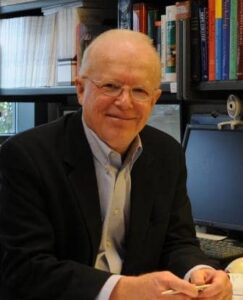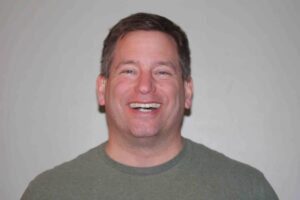By David H. Kirkwood
Several of the major hearing aid manufacturers and the non-profit organizations they fund do a lot of good work in the U.S. and overseas. For example, the Starkey Hearing Foundation has donated and fitted hundreds of thousands of hearing aids on people in countries all over the world. Hear the World, Sonova’s international initiative creates awareness of hearing and hearing loss and promotes good hearing. The Ida Institute, established by the Oticon Foundation, has been coming up with innovative ways to help hearing care professionals address the psychological and social challenges that accompany hearing loss.
You’d have to be naïve to believe that these programs are motivated entirely by altruism. Businesses of all kinds realize that the favorable publicity earned by philanthropic activities creates good will among their customers and prospective customers. On the other hand, good deeds are good deeds, regardless of their motivation. So, if businesses do well by doing good, they will be encouraged to continue and may inspire their competitors to follow their example.
FOCUS ON PEOPLE AWARDS
Speaking of inspiring, one of the non-profit programs that has long been a favorite of mine is the Oticon Focus on People Awards. Since 1997, Oticon, Inc., the U.S. division of the Danish-based Oticon A/S, has been honoring people of all ages who have not let their hearing loss prevent them from accomplishing great things.
Recipients of first-place awards in the various categories—student, adult, advocacy, and practitioner—receive $1000 prizes, and Oticon gives a matching award to the non-profit organization of each winner’s choice. In addition, the first-, second-, and third-prize winners are all honored at an awards ceremony and they generally receive considerable publicity in their local communities and throughout the hearing care field.
To me, the attention given to these high-achieving individuals with hearing loss is the most valuable part of the Focus on People Awards because of the encouragement it offers to others who share their disability. I can only imagine how discouraging it is for a child (and for the parents) to be diagnosed with a permanent hearing loss.
A caring audiologist will do the best she/he can to persuade the family that hearing impairment should not limit their hopes for their child’s future. However, nothing is quite as empowering for the child and parents as to learn about specific people who are leading successful, fulfilling lives, with the help of hearing aids or other treatments for their hearing loss.
Good role models, like those recognized by the Focus on People Awards, are very important for people facing the challenge of hearing loss. They give them reason to believe that they too can overcome their disability. Similarly, by turning the spotlight on outstanding advocates for the hard-of-hearing people, the program motivates others to become activists for this cause.
Next week, Oticon will honor all the Focus on People Award winners at a ceremony at its headquarters in Somerset, NJ. As always, the honorees are an impressive group.
Kristin Lee Inman, a 17-year-old from Pierre, SD, was awarded first prize in the student Category. Despite her hearing loss, she is ranked first in her class, plays six musical six instruments, is on the varsity tennis team, and serves on the youth board for the United Way.
First prize in the practitioner category will be presented to Tina Childress, an educational audiologist in Illinois. As a cochlear implant user, she brings a first-hand perspective to her work a cochlear implant outreach specialist and trainer. She also helps patients gain access to online support through her blog, Getting from There to Hear and her App List for Kids (and Adults) with Hearing Loss.
LOOPING AMERICA
I have special appreciation for two of the 2013 Focus on People honorees. One of them is my old friend David Myers, a psychology professor at Hope College, who will be cited for advocacy. I have been writing about his work and publishing his articles on this blog and elsewhere for close to a decade. During this time, Dave has become recognized as the face of the hearing loop movement in America.
What originally inspired him was a trip to Scotland where he discovered how well he could hear a service in an abbey that was “looped.” The induction loop broadcast the minister’s words directly into the telecoil of his hearing aid.
When he returned home to Holland, Michigan, he made it his mission to loop America, a daunting task considering how far behind many European companies the U.S. was. Starting close to home, Dr. Myers, in his pleasant but persistent manner, campaigned to have churches, theaters, arenas, and other public facilities install hearing loops. Meanwhile, he convinced local audiologists to make sure the hearing aids they dispensed had telecoils and that their patients knew how to use them.
Soon, Dave took his message beyond Michigan and began to speak and give interviews all over the country. Meanwhile, other looping advocates, some directly inspired by his work, emerged in Wisconsin, New York City, the Chicago area, parts of California, and Sarasota, FL, among other locations. The movement has also gained support from the American Academy of Audiology and the Hearing Loss Association of America.
While the mission that Dave Myers launched still has a long way to go, he is richly deserving of his Focus on People Award. Those inspired to join him should visit his web site.
THE WAY IT OUGHT TO BE
The other Focus on People awardee who especially caught my attention is Joseph Molinari, a policeman in Nashua, NH, who was voted first prize in the adult category. I’ve never met Sgt. Molinari, but there’s a reason that his story resonates with me. But first let me tell you why he was honored.
After eight years on the police force, Molinari suddenly suffered severe hearing loss in both ears. He didn’t want to give up his career, but he realized that he couldn’t hear well enough to do the job the way he wanted. He decided to get hearing aids, though he admitted that he was “terrified” of the reaction when he walked into the police locker room wearing them. As it turned out, he had nothing to fear. His fellow officers were extremely supportive.
Even more important, he could hear again. In fact, not long after getting his hearing aids, he was heading home from work when a passing motorist yelled to him. Despite the noise of heavy traffic, Molinari heard the shouts and realized what had happened. A car had gone off the road into a ditch. The officer ran to assist and found the driver was unresponsive. He administered CPR and revived the man, who made a full recovery.
Along with performing a demanding job ably and confidently, Joe Molinari spends some of his off-duty time coaching a kids’ basketball team. One of the boys wears hearing aids. Thanks to the coach’s example, the boy plays and is fully accepted by his teammates.
This heart-warming story is the direct opposite of what happened to two New York City policemen I learned of and wrote about soon after my colleagues and I started HearingHealthMatters.org. Unlike Sgt. Molinari, who was able to continue serving his community, the NYPD had no room for Daniel Carione and Jim Phillips, two veteran officers who began wearing hearing aids for work-related hearing loss. Instead of taking advantage of the men’s skills and experience, the department forced them to retire on disability.
Ironically, had the men simply continued working without hearing aids, they would probably be on the force today, since the NYPD doesn’t routinely test cops after they have been hired.
However, like Joe Molinari, Phillips and Carione acted responsibly and addressed their hearing loss. But in their case, doing the right thing cost them their jobs.
Wouldn’t it be great if Molinari’s award-winning police work inspired NYPD and other departments to rethink their policies and be open to keeping proven officers on duty if their aided hearing is good enough to do the job!










